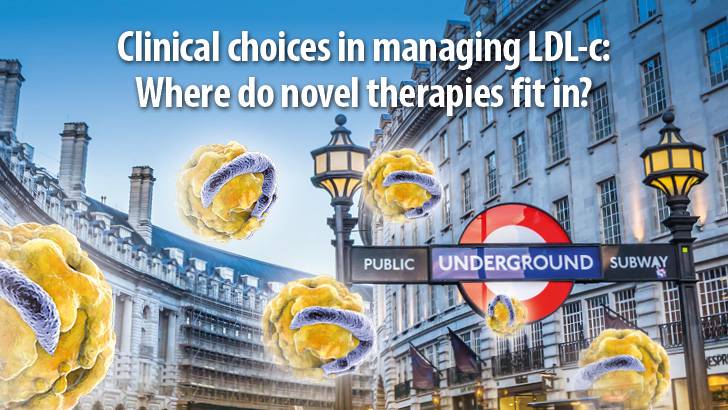Invitation to the EBAC-accredited Satellite Symposium "Clinical choices in managing LDL-c: Where do novel therapies fit in?"
For more information, please visit the ESC website.
Educational objectives
The educational objectives of the symposium are to:
• Understand the unmet need for additional LDL-c lowering therapies beyond current optimal statin- based therapy as strategy for addressing lipid-related high CV risk
• Describe the potential impact of novel LDL-c targeting therapies in patients who require additional LDL-c reduction
• Review new approaches for intensive lipid management in high risk patients
• Discuss combination therapy in high CV risk patients as new paradigm for prevention
Agenda
10:00 – 10:10 The remaining challenges in lowering LDL-c in patients at increased CV risk - Kausik Ray, MD - London, United Kingdom
10:10 – 10:20 Reaching LDL-c targets in patients at high CV risk How well are we doing? - Julia Brandts, MD - Aachen, Germany
10:20 – 10:30 The case for early LDL-c lowering in patients at increased CV risk: When should we start? - Pasquale Perrone-Filardi, MD, PhD - Naples, Italy
10:30 – 10:40 Novel oral LDL-c lowering therapies on the horizon: CETP inhibition - Ulrich Laufs, MD, PhD - Leipzig, Germany
10:40 – 10:45 Discussion - All faculty
CME Accreditation
This programme is accredited by the European Board for Accreditation of Continuing Education for Health Professionals (EBAC) with 45 minutes effective education time. Each participant should claim only those hours of credit that have actually been spent in the educational activity. The Accreditation Council for Continuing Medical Education (ACCME®) and EBAC have recognized each other’s accreditation systems as substantially equivalent.
Funding
This symposium is supported by an unrestricted educational grant from Amgen and NewAmsterdam Pharma/Menarini.













